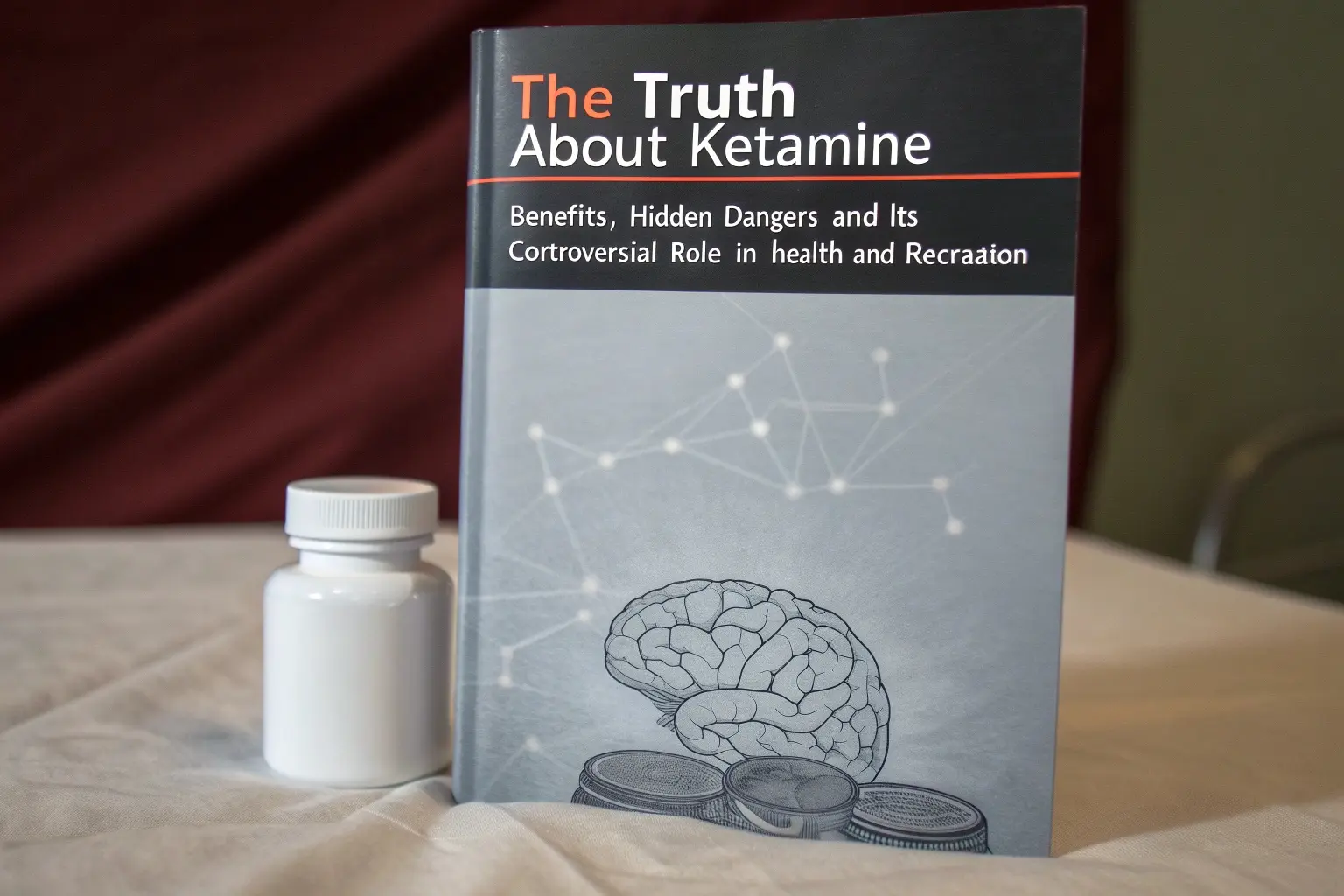HRT and Menopause: The Hormone Therapy Revolution That’s Helping Women Reclaim Their Lives
A new era of relief, resilience, and renewed identity for women in midlife

Menopause isn’t just a biological transition; it’s often perceived as a cultural and emotional one too. For years, women were taught to simply endure the symptoms of menopause — like hot flashes, mood swings, and weight gain — without understanding the full scope of treatment options available. Hormone Replacement Therapy is considered a highly effective menopause treatment that can significantly improve quality of life. But as awareness has grown, so has a solution that’s revolutionizing the menopause experience: Hormone Replacement Therapy (HRT).
With HRT, women no longer have to just suffer through menopause. They can thrive through it.
In this comprehensive guide, we’ll walk you through everything you need to know about HRT — from how it works to its benefits, the real risks (including the big question: does it cause cancer?), and the personal stories of women whose lives have been transformed. By the end, you’ll have the knowledge to make informed decisions about your own health and when to reach out for medical advice.
What Is Hormone Replacement Therapy (HRT)?
Hormone Replacement Therapy (HRT) is the treatment used to replace the estrogen (and sometimes progesterone or testosterone) that a woman’s body stops producing during menopause. As a leading menopause treatment, HRT helps alleviate these hormonal changes and their associated symptoms. Menopause typically occurs around age 50, but the process can start much earlier during perimenopause (which can last for several years). During perimenopause, the ovaries produce fewer hormones, resulting in various uncomfortable symptoms.
HRT aims to replenish those hormones, thereby alleviating symptoms like:
- Hot flashes
- Night sweats
- Vaginal dryness and discomfort
- Fatigue
- Low libido
- Memory issues and brain fog
- Mood swings, anxiety, and depression
- Weight gain
- Joint pain
- Sleep disturbances
There are two main types of HRT:
- Estrogen-only HRT: This is used for women who’ve had a hysterectomy (removal of the uterus), as estrogen alone is sufficient.
- Combined HRT: This includes both estrogen and progestin (synthetic progesterone) to protect the lining of the uterus, especially for women who still have their uterus.
HRT can be administered in various ways, including pills, patches, gels, creams, and vaginal rings. The best method depends on your health, lifestyle, and preferences.
What Are the Benefits of HRT According to Science?
The benefits of HRT go far beyond just relieving symptoms. Here are some of the scientifically-backed advantages that have been proven through clinical studies and real-world applications:
1. Relieving Menopausal Symptoms
The most well-known benefit of HRT is its ability to effectively manage the most common symptoms of menopause. In fact, studies have shown that HRT is the most effective treatment for symptoms like hot flashes, night sweats, and vaginal dryness. According to a study published in the Journal of the American Medical Association, 80% of women on HRT saw significant improvements in symptoms within just a few weeks of starting treatment.
2. Bone Health
After menopause, the lack of estrogen increases the risk of developing osteoporosis — a condition that weakens bones and makes them more likely to fracture. Estrogen is vital for bone density, and research has shown that HRT can reduce the risk of fractures by up to 30-40% in postmenopausal women. HRT may also increase bone mass in the spine and hip during the first few years of use.
3. Cardiovascular Benefits
There’s been considerable debate about whether HRT has a positive or negative effect on heart health. Recent studies have revealed that starting HRT within 10 years of menopause can actually lower the risk of cardiovascular disease. According to the North American Menopause Society (NAMS), the risk of heart disease is significantly lower in women who begin HRT soon after menopause, compared to those who delay treatment.
4. Improved Mental Health and Brain Function
Estrogen plays an important role in maintaining brain function, and the reduction of estrogen during menopause can affect mood, memory, and cognitive function. A study published in the Journal of Clinical Psychiatry found that women on HRT had lower rates of depression and anxiety compared to those who were untreated. Moreover, newer research shows that HRT can help prevent cognitive decline and reduce the risk of Alzheimer’s disease when started early.
5. Sexual Health and Libido
One of the more often overlooked benefits of HRT is its ability to improve sexual health. Many women experience vaginal dryness and painful intercourse due to declining estrogen levels. HRT can help restore vaginal tissue, increase lubrication, and even improve libido by restoring hormone balance.
6. Improved Quality of Life
Overall, HRT has been shown to significantly improve quality of life. Women who use HRT report better sleep, higher energy levels, improved relationships, and a renewed sense of well-being. HRT is often life-changing for women who felt they had no control over their bodies due to menopausal symptoms.
Read About: What Is Andropause? A Closer Look at the Male Aging Process
Does HRT Increase Cancer Risk?
The fear that HRT increases cancer risk is rooted in data from the 2002 Women’s Health Initiative (WHI) study, which showed that some forms of HRT, particularly combined estrogen and progestin therapy, were associated with a slight increase in breast cancer risk. However, research has evolved significantly since then.
- Breast Cancer: Current studies show that estrogen-only therapy doesn’t increase breast cancer risk and may even slightly reduce it in some cases. For combined HRT, the risk of breast cancer is low and increases only slightly with prolonged use (more than 5 years). The risk is still small compared to the benefits.
- Endometrial Cancer: Women who still have a uterus and are using estrogen-only therapy face a higher risk of endometrial cancer. This is why most women on estrogen alone also use progestin (or have a hysterectomy).
- Ovarian Cancer and Blood Clots: Research has shown that HRT can increase the risk of blood clots, particularly in oral forms, but transdermal patches pose a significantly lower risk. The link between HRT and ovarian cancer is less clear; some studies show a slight increased risk, while others do not.
The Bottom Line on Cancer Risk
For most women, the risks associated with HRT are small and can be minimized with careful medical management. If you’re under age 60 and start HRT soon after menopause, the benefits likely outweigh the risks. It’s essential to have a personalized conversation with your doctor about your individual risk factors.
Who Can Benefit the Most from HRT?
HRT is not a one-size-fits-all solution, but for many women, it can be a game-changer. It can benefit:
- Women experiencing severe perimenopausal symptoms: If you’re struggling with hot flashes, night sweats, and mood swings, HRT could be the relief you need.
- Women who’ve had early menopause: If you went into menopause before age 40, or had a hysterectomy, HRT can help restore balance and protect long-term health.
- Women with a history of osteoporosis or cardiovascular risk: HRT is often recommended for women with a family history of heart disease or bone fractures.
- Transgender women: HRT is a critical part of gender-affirming treatment for trans women, helping them align their physical appearance with their gender identity.
Read Story Of James Davis: Male Menopause: Perform at Your Full Potential After 45
When to See a Doctor
HRT is not for everyone, and it’s important to speak with a healthcare provider before starting treatment. If you’re experiencing severe menopause symptoms that are interfering with your life, or if you have a history of osteoporosis or heart disease, it’s time to consult a doctor.
When Should You See a Doctor About HRT?
- If you’re struggling with symptoms that interfere with your daily life
- If you have a family history of certain cancers (such as breast or ovarian)
- If you’re unsure about the risks or benefits of HRT in your case
- If you’re interested in exploring alternative menopause treatments
A healthcare professional, ideally one with expertise in menopause, will guide you toward the safest and most effective options.
Real-Time Help and Support
The online community for women going through menopause is stronger than ever. Platforms like Balance Menopause, Reddit’s r/Menopause, and forums hosted by organizations like the British Menopause Society provide advice, support, and success stories that help women navigate this life stage with confidence.
If you’re considering HRT, look for doctors who specialize in menopause care, and ensure they are up to date on the latest research. It’s crucial to have a tailored approach based on your unique health history and needs.
Where Can You Find Real-Time Support for Menopause and HRT?
HRT has become a transformative treatment for many women experiencing menopause. With the right knowledge and the support of a skilled healthcare provider, women can manage their symptoms, maintain long-term health, and embrace this phase of life with confidence and vitality. As an effective menopause treatment, HRT offers relief from common symptoms and supports overall well-being.
Remember, menopause is a natural part of life, and HRT may be one of the most powerful tools to help you live it fully. Don’t suffer in silence — speak with a doctor and explore your options today.









1 Comment
Hi, this is a comment.
To get started with moderating, editing, and deleting comments, please visit the Comments screen in the dashboard.
Commenter avatars come from Gravatar.
Comments are closed.